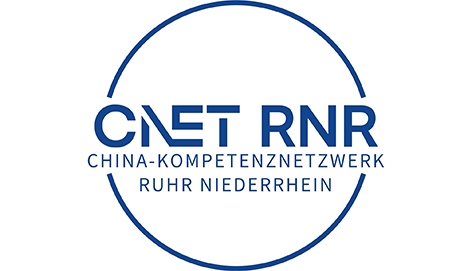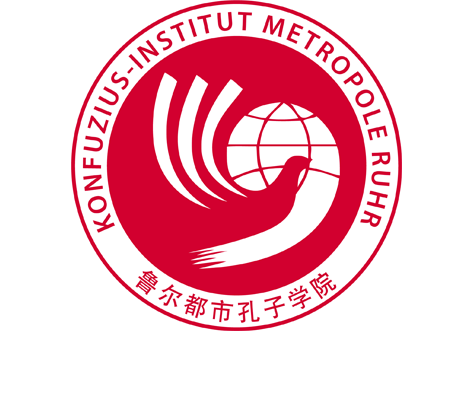Innovative Forms of Democratic Participation: Deliberations in a Japanese and German Comparison
Innovative Forms of Democratic Participation: Deliberations in a Japanese and German Comparison
Principal Investigator: Dr. Momoyo Hüstebeck (IN-EAST)

Funded by BMBF (Federal Ministry of Education and Research),
No. 01UL 1828X
Funding period: 09/2018–03/2022
Research Outline – Selected Publications –
Selected Presentations
Research Outline
As empirical studies have demonstrated, even in consolidated democracies, democratic norms such as equality or accountability are not inherent in the political system. In fact, political theory assumes that the resilience of liberal democracies is challenged constantly and their values are being contested. Also, in practice, recent concerns about the global trend of democratic threats have superseded the enthusiasm for democracy after the third wave of democratic transformations at the end of the twentieth century. Thus, political scientists have widely discussed new methods of a participatory, deliberative and direct democracy to ameliorate the stated malaise of representative democracies (Newton and Geissel 2012; Kersting 2017; Tsubogō 2015).
All these normative concepts build on the idea that the origin of modern mass democracies lies in the ancient self-government of citizens. Therefore, citizen participation is also the essence of a representative democracy today. Despite the continuity of this democratic core value, politics has been transformed over time by changing socio-political behavior based on needs and demands of the sovereign. Giving concrete samples: the number of citizens’ demands for a more frequent and influential direct say on policy-making has risen, in contrast voter turnouts are at the record-low. These transformations have forced polity to react to the status quo of today’s society and to reflect on suitable and effective participatory designs.
Against this academic backdrop, this research project empirically scrutinizes to what extent innovative forms of participation – especially deliberations – effectively cure the recent malaise of German and Japanese representative democracies. The study combines methodologically qualitative criteria which are based on normative theories of deliberative and participatory democracies, and concepts for measuring the quality of democracy. Focussing on deliberative participation from an institutional perspective, deliberations are here conceived as governmentally implemented political procedures which provide citizens with participatory forums. There, they can discuss equally and independently in groups about given political topics. The participants form their opinions based on officially provided, balanced information. After the deliberation, the participants’ suggestions are summarized in non-binding policy recommendations which are submitted to the responsible government.
Identifying a focus on Europe and North America in the publications on participatory and deliberative democracy, this project pursues to fill this gap with its Japanese-German research project. This innovative, interregional study aims to enhance existing empirical
and theoretical research. Moreover, the comparison endeavors to identify the cultural determinants of democratic challenges in society, politics and polity, and to furthermore scrutinize potential solutions to counteract them. Concretely, the qualitative research method of this project combines analyses of academic discourses with empirical cases of deliberations in Germany and Japan. Among the vast number of diverse deliberative procedures, mini-publics and a deliberative poll serve as empirical samples for Japan, the former being the most widely spread deliberative method there. In the First National Deliberative Poll in Tokyo in 2012, a randomly selected representative sample of citizens from all over the country discussed and formed their opinions about Japan’s future energy strategies after the nuclear accident in Fukushima. The cases are elaborated qualitatively using in-depth interviews, official publications and additional studies. The criteria for evaluating the deliberative impact on Japanese and German democracies are anchored in theories of deliberative and participatory democracies and concepts of measuring democratic quality.
Lastly, this research project utilizes the considerable expertise of its principal investigator in Japanese studies and political science to meet the demands of the BMBF-funded program “Small disciplines – Big potentials”. Her familiarity with the state-of-the-art in political science leads to a study which is more firmly embedded in methods and theories of the discipline than single area studies often are. At the same time, her holistic approach of Japanese studies reveals, in an innovative manner, the socio-politically shaped cultural explanations for the deliberative outcomes in the respective country. By including Japanese cases in this research, it counteracts the western bias in literature and creates a new sensitivity for the Euro-/Anglo-centric perspectives in political science. In summary, the project intends to strengthen the significance of Japanese social science studies in German academia, to invent methodological impulses for the area study and to provide new empirical insights for the discipline of political science.
Selected Publications
 Momoyo Hüstebeck (2020): Die Bürgerbeteiligung an deliberativen Entscheidungsverfahren in Japan: Kommunale Planungszellen und die erste nationale Deliberative Poll. East Asia Today Working Paper Series No. 10, Heidelberg University, Institute of Chinese Studies.
Momoyo Hüstebeck (2020): Die Bürgerbeteiligung an deliberativen Entscheidungsverfahren in Japan: Kommunale Planungszellen und die erste nationale Deliberative Poll. East Asia Today Working Paper Series No. 10, Heidelberg University, Institute of Chinese Studies.
https://ostasien-aktuell.uni-heidelberg.de/wp-content/uploads/2020/11/010-OAWP-Huestebeck-2020-3.pdf
Abstract:
Citizen participation in Japanese deliberative decision-making processes: Local mini-publics and the first national Deliberative Poll
Democratic weaknesses, such as a record-low voter turnout or a lack of checks and balances, are entrenched in the Japanese political system. Normative theories of democracy (Smith, 2009; Geissel and Newton, 2012) favor an increased citizen participation to counteract these democratic challenges. They expect that the enhancement of participatory policy-making improves overall democratic quality. Within the wide range of participatory methods, Japanese practitioners and academics have focused particularly on deliberation.
In this paper, deliberation is defined as a government-initiated group discussion amongst citizens on a given policy. The randomly selected participants submit a recommendation at the end of their deliberations. Concretely, planning-cells (mini-publics), which are the most widespread deliberative method in Japan, and the first national Deliberative Poll serve as empirical cases in this study. The paper investigates the positive impact of deliberations on political malaise by scrutinizing their implementation. For the evaluation, conceptual criteria which refer to the quality of democracies and to democratic theories are applied. Furthermore, the hypothesis is put forward that cultural, informal rules of politics affect the conditions for implementing deliberations. Consequently, it is assumed that the formal design of the given deliberative samples is identical in all democracies over the world. However, the concrete actors, intentions and outcomes differ depending on informal political rules or patterns of the specific state. Based on the empirical analysis of deliberative decision-making processes, limited improvements to Japan’s democratic quality can be identified. However, the persistence of informal politics still demonstrates the reservations among policy-makers about giving citizens an influential direct say. The informal obstacles have, rather, hindered a further enhancement of citizen participation and therefore the development of a stronger democracy in Japan. In sum, implementing deliberations is in contrast to some positive effects not the universal remedy for meeting the democratic challenges.
 Momoyo Hüstebeck (2020): Innovating Japanese Representative Democracy by Means of Participatory Democracy. In: Schmidt, Carmen and Ralf Kleinfeld (eds.): The Crisis of Democracy? Chances, Risks and Challenges in Japan (Asia) and Germany (Europe). Newcastle: Cambridge Scholars Publishing, p. 93–111.
Momoyo Hüstebeck (2020): Innovating Japanese Representative Democracy by Means of Participatory Democracy. In: Schmidt, Carmen and Ralf Kleinfeld (eds.): The Crisis of Democracy? Chances, Risks and Challenges in Japan (Asia) and Germany (Europe). Newcastle: Cambridge Scholars Publishing, p. 93–111.
https://books.google.de/books?id=Dxu7DwAAQBAJ&
pg=PA93&hl=de&source=gbs_toc_r&cad=3#v=one
page&q&f=false
 Momoyo Hüstebeck (2019): Deliberative Innovationen in Japan angesichts demokratischer Herausforderungen. In: Zeitschrift für Politikwissenschaft 29(4), 471–490.
Momoyo Hüstebeck (2019): Deliberative Innovationen in Japan angesichts demokratischer Herausforderungen. In: Zeitschrift für Politikwissenschaft 29(4), 471–490.
https://link.springer.com/article/10.1007/s41358-019-00202-6
Abstract:
Deliberative innovations in Japan against the backdrop of democratic challenges
Like other established democracies, Japan has faced democratic challenges. Besides increased constraints on liberal democratic rights under the current national government, other democratic weaknesses, such as a record-low voter turnout or lacking checks and balances, have persisted in the Japanese political system. To counteract this (partial) crisis, democratic innovations have been in academic favor. A democratic innovation is here defined as a top-down implemented innovative institution of citizen involvement in policy-making. Based on the normative expectations of positive effects on democracy, this article investigates the impact of democratic innovations on the quality of democracy in Japan. For my evaluation, I apply qualitative criteria which refer to concepts of the quality of democracy, deliberation and democratic innovations. Choosing from a wide range of democratic innovations implemented, in particular at the local level since the 1990s, this study specifically scrutinizes two deliberative forms of participation. Namely, planning-cells (mini-publics), as the most widely spread deliberative method in Japan, and the First National Deliberative Poll in 2012 serve as empirical cases. In the latter deliberative experiment, a randomly selected representative sample of citizens from all over Japan discussed and formed their opinions about Japan’s future energy strategies after the nuclear accident. By qualitatively evaluating the two methods, this paper highlights their merits und challenges for strengthening democracy. Concluding from the empirical results, I ascertain some punctual improvements (such as citizen empowerment). However, implementing democratic innovations is not the universal remedy for curing the democratic malaise.
Selected Presentations
Migrant policies of Japanese municipalities: Local governments filling the national vacuum. – DGA Conference 2021, 03/2021
Meeting the challenges of the Japanese consolidated democracy: Deliberation as an asset to resilience. – Workshop Democratic backsliding in Asia: Resilience, responses, revival, Heidelberg University / Bertelsmann Foundation 12/2019.
Deliberative democracy in Japan against the backdrop of democratic challenges. – AREA Ruhr Lectures Series, Ruhr University Bochum, 12/2019.
Cities and participation: Planning cells for integrating citizens into the municipal decision-making process. – VSJF (German Association for Social Science Research on Japan) Annual Conference, Ruhr University Bochum, 11/2019.
Merits and challenges of deliberative democracy in Japan. – German Institute of Japanese Studies DIJ, Tokyo, 06/2019.
Deliberation in Japan angesichts der Herausforderungen für die repräsentative Demokratie (Deliberation in Japan against the backdrop of democratic challenges). – Centrum für Asienwissenschaften und Transkulturelle Studien, University of Heidelberg, 06/2019.
Deliberative innovations – Curing the malaise of Japanese representative democracy? – Fachgruppe Politik (Section: Politics), VSJF (German Association for Social Science Research on Japan) Annual Conference, Japanese German Center Berlin (JDZB), 11/2018.
Invited spaces – Deliberative innovations in comparison to social movements in claimed spaces. – Workshop Social processes and effects of innovations in Tokyo and beyond, IN-EAST School of Advanced Studies, University of Duisburg-Essen, 11/2018.
Schwache Zivilgesellschaft versus starker Staat? Entwicklungen von sozialen Bewegungen und gemeinnützigen Organisationen in Japan (Weak civil society vs. strong state? The developments of social movements and NPOs in Japan). – Institute of Japanese Studies, University of Vienna, 10/2018.
Partizipative und deliberative Innovationen vor dem Hintergrund einer schwachen Zivilgesellschaft (Participatory and deliberative innovations against the backdrop of a weak civil society). – Kongress der Deutschen Vereinigung für Politikwissenschaft (DVPW) Grenzen der Demokratie, Goethe University, Frankfurt a.M., 09/2018.
Invited spaces in Japanese democracy. The empirical impact of deliberative innovations. – Conference of the Participatory and Deliberative Democracy Specialist Group (PDDSG) of the Political Studies Association, Centre for the Study of Democracy, University of Westminster, London, 09/2018.











